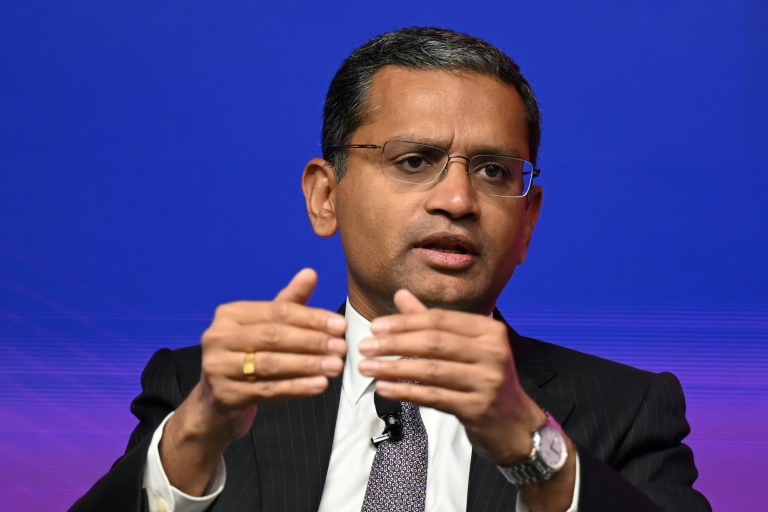Micron is set to receive up to $6.1 billion in grants from the US government to help build its semiconductor plants in New York and Idaho, the White House said Thursday.
The award, to be announced by President Joe Biden as he travels to Syracuse, New York, is the latest in a series of efforts by Washington to bring semiconductor production back to the country.
The United States has been working to ensure its lead in the chip industry, especially with regards to the development of artificial intelligence — both on national security grounds and in the face of competition with China.
The investment will help Micron “bring back leading-edge memory chip manufacturing to the United States for the first time in 20 years,” Chuck Schumer of New York, the Senate majority leader, told reporters.
The $6.1 billion in direct funding comes under the CHIPS and Science Act, a major package of funding and tax incentives passed by Congress in 2022 to boost research and US semiconductor production.
The White House said the funds will go to supporting construction of two facilities in Clay, New York, and one in Boise, Idaho, where Micron is headquartered.
The US Commerce Department will also make up to $7.5 billion in proposed loans available under a preliminary deal.
Micron is set to invest up to $125 billion across both states over the next two decades “to build a leading-edge memory manufacturing ecosystem,” according to the White House.
The US chipmaker’s total investment is due to create more than 70,000 jobs, including 20,000 direct construction and manufacturing roles.
– Supply chain shocks –
While semiconductors were invented in the United States, the White House noted that the country makes just around 10 percent of the world’s chips now — and “none of the most advanced ones.”
Micron CEO Sanjay Mehrotra called the step a “historic moment” for US semiconductor manufacturing, saying its US investments will “create many high-tech jobs.”
“Leading-edge memory chips are foundational to all advanced technologies,” said Commerce Secretary Gina Raimondo.
She added that returning the development and production of advanced memory semiconductor technology to the country is “crucial for safeguarding our leadership on artificial intelligence and protecting our economic and national security.”
Chips are needed in powering everything from smartphones to fighter jets, and are increasingly in demand by automakers, especially for electric vehicles.
But the global chip industry is dominated by just a few firms, including TSMC in Taiwan and California-based Nvidia.
The United States is dependent on Asia for chip production, making it vulnerable to supply chain shocks, such as during the Covid-19 pandemic or in the event of a major geopolitical crisis.
“We’re already seeing AI revolutionize our world and grow at an unprecedented pace,” said Schumer.
“We cannot, cannot have these chips made overseas, especially by competitors like China. We cannot have them be the only supplier,” he added.
Apart from the grants to Micron, Biden is also expected to announce four new “workforce hubs” in the Upstate New York region, the state of Michigan, as well as the cities of Philadelphia and Milwaukee.
According to senior government officials, such hubs are a way to spur more commitments from employers and educational institutions.

 Business4 months ago
Business4 months ago
 Business5 months ago
Business5 months ago
 People4 months ago
People4 months ago
 Events3 months ago
Events3 months ago
 Events6 months ago
Events6 months ago




